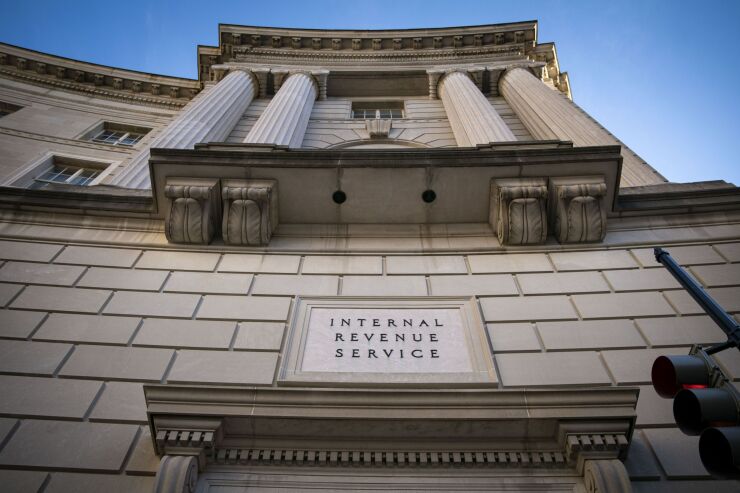Should taxpayers expect more scrutiny from the Internal Revenue Service, a chunk of whose $80 billion in additional funding will pay for more auditors to ferret out tax cheats?
One factor that may temper the angst for affluent investors, according to wealth advisors: a shortage of trained accountants amid a coming wave of IRS employees retiring.
Nearly $46 billion of the IRS's extra funding for the next 10 years is earmarked for
A product of President Joe Biden's Inflation Reduction Act last April, the funding boost envisions the IRS
It all means competition for talent. Bloomberg estimates that the number of
"Even if they deploy all that capital to hire agents to be in the field, they'll have a hard time over the near term," said Matt Chancey, an advisor with Micel Financial in Tampa, Florida. "It's not like there's a glut of people sitting on the sidelines saying, 'Hey, I can't wait to go join the IRS.'"
Scott Bishop, the executive director of wealth solutions at Avidian Wealth Solutions in Houston, said the agency would be competing for private sector accountants who get paid more.
"Some people might like a government job, but most aren't attracted to statutory salary caps," he said. "My CPA friends can't find good quality tax staff. Why does the IRS think it's going to be able to?"
The increased funding is intended to shore up the nation's tax collector, which has been on a decline for at least a decade amid an exodus of workers, perennial Congressional budget cuts and aging technology.
Nearly $46 billion will go to enforcement, while some $34 billion will go to improving the IRS's Flintstones-style system, immortalized in a Washington Post photo last August showing
The agency's
"We will soon find out whether the upcoming filing season adds a similar chapter to this series or whether the IRS can work through its backlog, process tax returns and correspondence quickly, and answer its phone calls," National Taxpayer Advocate Erin Collins wrote on Nov. 10.
The Treasury Department, which oversees the IRS, says that increased enforcement is aimed at raking in some of the roughly $600 billion a year in taxes that goes uncollected. The figure, known as the
While the chances of scrutiny are relatively low, these issues can put a wealthy taxpayer on the agency’s radar.
Audit rates have been declining for roughly a decade. In 2021, only 4.5 out of every 1,000 individuals who earned between $200,000 and $1 million — less than half a percent of that group — were audited,
The rate at which millionaires were audited in 2012, when fewer of them existed, fell 72% by 2020, when fewer than two of every 100 taxpayers earning more than $1 million were scrutinized, TRAC data shows.
Biden has said that the increased funding won't target people who earn less than $400,000.
The agency has several new areas of scrutiny. A law that went into effect this year requires cash apps and online marketplaces such as Venmo and eBay to send tax documents to millions of Americans
The IRS began
The requirement, buried in the $1 trillion infrastructure law passed last year, mirrors one for brokerages and has flown under the radar.
The two areas "will affect people at all income levels," said Steven Novack, a senior financial advisor at Altfest Personal Wealth Management in New York. Other points of interest to the IRS include high-income earners with partnerships, trusts, S corporations, private foundations and large gifts.
"These areas are not as easily documented, like a job or brokerage account," Novack said.
Bishop argued that small businesses, gig workers and cash-intensive operations like restaurants are likely in the cross hairs.
"These are the people who are really going to be hit," he said. "You don't need 10,000 agents to go after the billionaire tax class because their aren't that many billionaires."








